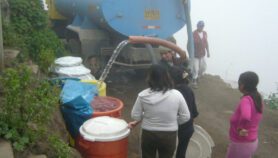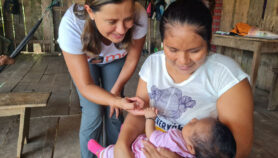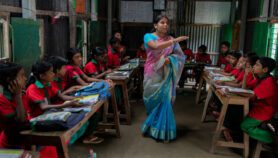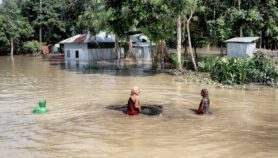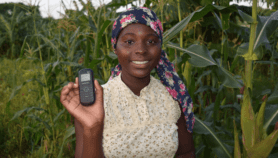By: T.V. Padma
Send to a friend
The details you provide on this page will not be used to send unsolicited email, and will not be sold to a 3rd party. See privacy policy.
[NEW DELHI] A group of Indian organizations has set up a ‘national alliance’ to ensure that the rural poor are not excluded from the benefits of information and communications technologies (ICTs).
The National Alliance for Information and Communication Technologies for Basic Human Needs was launched at a meeting of more than 50 development experts at the M. S. Swaminathan Research Foundation (MSSRF) in Chennai last week.
Comprising representatives of the Indian government, civil society organisations, academics and industry, it aims to take knowledge-based services to all of India’s 600,000 villages by 2007, when the country celebrates its 60th year of independence.
Those attending last week’s meeting established seven task forces to look into the issues of connectivity, content, policy, capacity building, resources, organisation, and management and programme design, respectively, and to develop a common minimum action plan.
“This is the first time that a national level task force on ICT led by civil societies has been formed,” says Basheerhamad Shadrach, director of OneWorld South Asia and a joint secretary with the alliance. Government and industry led the previous two nationwide ICT initiatives in India, with limited participation from civil society.
Several Indian initiatives on ICT already exist, some aimed for example at social empowerment, others being promoted by the commercial sector or offering viable models of revenue generation and sustainable livelihoods. A convergence and synergy among these could help reach the alliance’s goal, according to information scientists from MSSRF who attended the meeting.
Several argued that providing broadband connectivity to rural homes at affordable costs and integrating it with diverse technological applications could be the key to helping the poor benefit from ICT. The national alliance would help India leapfrog from a few thousand information kiosks to a knowledge-based rural economy, they say.
They advocate converting information kiosks into multipurpose community centres. Such communication hubs could provide multiple telephone and communication services to the village, including a ‘virtual academy’ and training centre; support centre for rural entrepreneurship; and outlet for banking, financial and insurance services, and trading.
In addition, they could serve as social empowerment organisations and support centres providing health, education and livelihoods information and services.
The participants agreed to piggyback on existing government and private ICT infrastructure to create such community knowledge centres. To catalyse technology innovation for rural ICT, they recommended setting up a national resource centre for learning and experimenting innovations in rural ICTs.
Those attending the meeting also urged a greater role for ICT in preparing for and managing disasters. Shadrach says the Indian government “should liberate the vast amount of spatial data” available through its remote sensing satellites for use by grassroots civil society organisations. ‘Geospatial empowerment’ is key to local resource planning, he argues. But such data is only made available to district administrative officials, and is too technical for lay people to comprehend.



